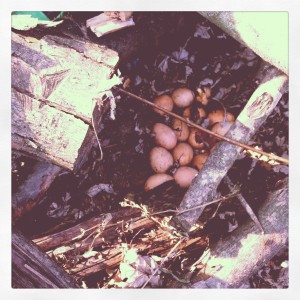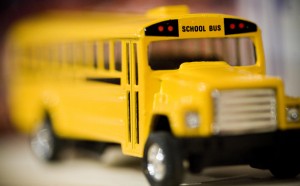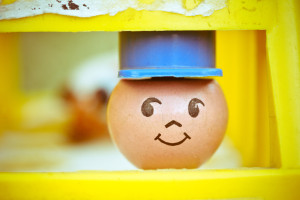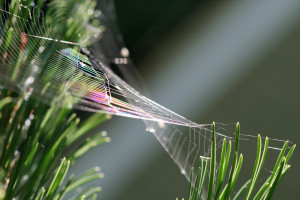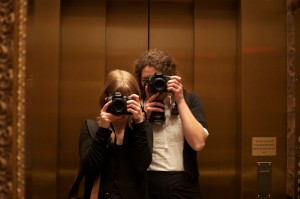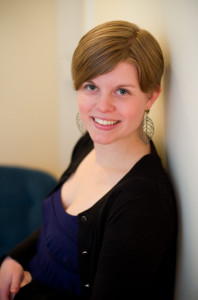We call getting out the door in the mornings ‘achieving escape velocity’, and it amazes me, some days, how quickly everything can fall apart.
6:17 am, Monday morning: Awakened by the adorably annoying sing-song, “Mama-dada-mama-dada.” I groan. Our youngest–the early riser–is awake. It’s time to start the day.
6:55 am: Coffee cup in hand, the early riser busy downstairs, I sit on the edge of the 8-year old’s bed, coaxing her into the morning. Like her mama, she would rather sleep in.
“Are your muscles still sore from swimming lessons?” I ask gently.
“Just a teeny bit.”
“You are getting so strong, honey.”
“I know.”
And she tells me about gym class, and we remember the weekend together. After a few minutes, she’s off to the bathroom and I head back downstairs.
* * *
 7:30 am: “Wow,” I say over the familiar rhythms of the morning news, “We’re really ahead of the game today.”
7:30 am: “Wow,” I say over the familiar rhythms of the morning news, “We’re really ahead of the game today.”
And we are. Everyone is dressed. Lunches are packed. Warm oatmeal fills their bellies. They are getting a special treat–a morning video. With the Kratt brothers entertaining, I heat up my remaining coffee in the microwave and take a long sip.
I let my guard down–a rookie mistake, though I no longer have this excuse.
* * *
7:45 am: “Darnit, it’s 7:45 already.” I put my mug on the counter and start yelling. “Five minutes until you need to leave for the bus! Five Minutes!”
7:47 am: “Where are my tennis shoes? We have gym class today!” The eight year old is jolted by the change, and she bucks. “I am not going to school without my tennis shoes!” “Oh yes, you are. Here are your tennis shoes–put them on now!”
She freezes in place, glaring at me. My blood pressure rises. Rapidly.
7:48 am: “Did you hear what I said? What are you doing? Get your shoes on! Shoes!” “No! I can’t find my bookbag and I. Am. Not. Going. To. School!”
7:49 am: “The only thing that is going to happen is that you’re going to miss your bus, and then daddy will have to drive you to Jackson Street! (the bus stop she hates) Don’t do this… is this what you do after we let you watch a video and make you oatmeal? Is this how you thank us? Get your coat on and get out the door!”
7:50 am: “I still can’t find my bookbag!”
“Well, where did you put it? I can’t be in charge of everything for you!”
“I am not going to school without my bookbag!”
“Your bus is coming!”
At this point she sweeps her angry hand across the coats and knocks the whole row to the floor. I throw the tennis shoes (which are still not on her feet) at the steps. It is not our prettiest moment.
7:51 am: My husband comes back inside from the car and takes in the situation. He slides the shoes on her feet, grabs her bookbag (now revealed–it was under a coat), and ushers her out the door. I slam it behind them.
And here is what I am trying to shut out– her rage is like looking in a mirror.
* * *
7:54 am: I turn the television back on for our youngest. She wants another Wild Kratts. “Fine, whatever,” I walk to the back window and fume.
8:00 am: I take a deep breath. Then ten more. “Fail,” I tell myself. “Parenting fail.”
8:05 am: I heat up my coffee again and sit, warming my hands.
8:10 I picture her, on the bus, and hope that she still remembers those first moments of the morning, those moments when I sat on the edge of her bed and we talked about sore muscles. She is a strong girl. So am I. And it’s a good thing. Achieving escape velocity is never easy, and tomorrow we’ll do it all again.
Mostly, I’m just grateful for another chance.
* * * * *
Photo by Shereen M on Creative Commons


